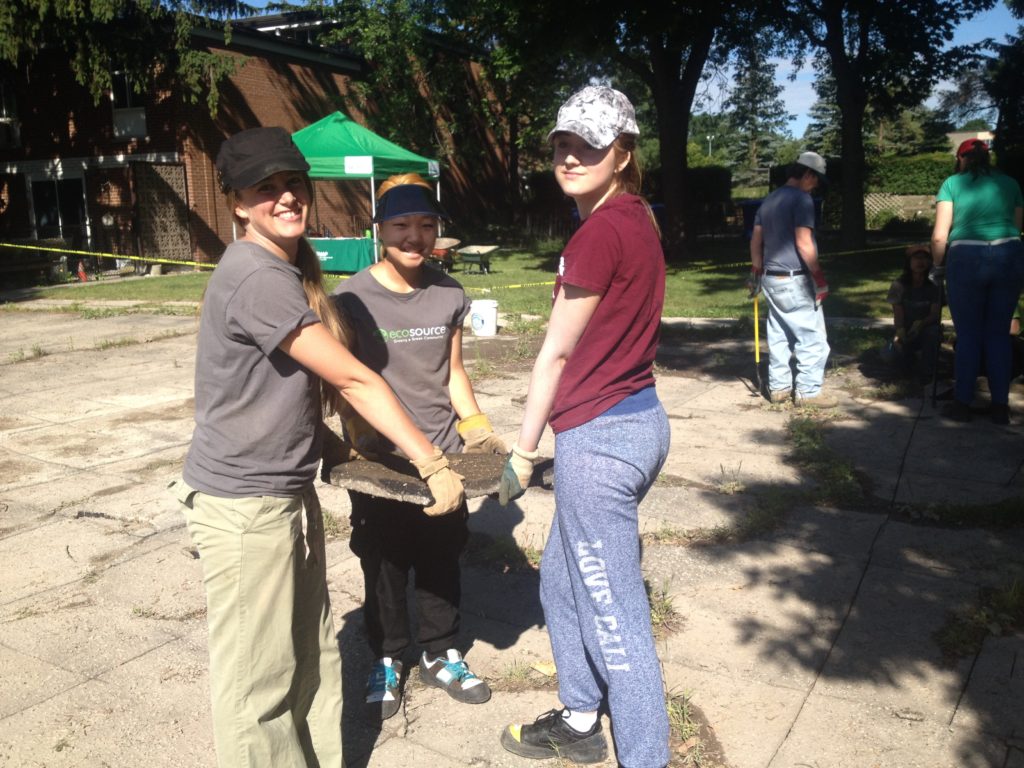Written with input from Alix Taylor
Climate anxiety or eco-anxiety is on the rise. Increasing scientific evidence and reports that time is running out to act on climate change are likely not helping the situation. Many studies show that children and youth are disproportionately affected by the growing concern about climate change, and that many are more worried about climate change than they are about their homework!
“When assessing their mental health, many clients state that climate change and the state of the environment is causing them to feel anxious, worried, demoralized and depressed,” says Alix Taylor, a registered social worker who practices as a therapist in Peterborough, ON. “Anxiety about the climate can cause people to experience low mood, an increase in worrying thoughts, and even disrupted sleep. As well, we are seeing that it can impact serious life decisions, such as whether or not to start a family.”
Taylor — who also worked on various community-based water conservation programs as Green Communities Canada’s Water Programs Manager — shares some thoughts on how to deal with climate anxiety while also having a positive impact on the environment.
Eco-anxiety and climate action – finding the balance
Anxious thoughts and feelings can overwhelm a person. Figuring out how to address and manage these symptoms can involve different strategies. When people experience anxiety, they often have a variety of worries — including regret about the past and uncertainty about the future. Generally, people with eco-anxiety feel as if they are powerless to change the ‘path’ to climate destruction. According to Taylor, one solution for managing anxiety is to take action — to find things (big or small) you can do to make a difference.
“Young people are growing up in a time where they are seeing the impacts of climate change and they are rightfully worried about what their future will look like. I would suggest that they look for connections in their community, for example, environmental clubs, groups or organizations, and see what they can participate in and who might help them to amplify their voice. Get involved in governance — are there municipal committees you can join in your community? Can you speak at council meetings about specific environmental issues that concern you? Write letters to the paper, to your government representatives, your city council, etc.,” says Taylor.
However, Taylor also notes the number of issues and potential actions a person can take are endless and that too can feel overwhelming. This is when it is important to pace yourself and practice self-care.

Youth volunteers at a Depave Paradise event
5 things Canadians can do to cope with climate anxiety/eco-anxiety
Take time to critically examine your thoughts
It is important to examine worrying thoughts and consider which worries are in your control and which ones are not. Focus on the things within your control, and try to release or manage fears that are not.
Take action
Once you determine which concerns are within your control, find out what you can do to address them. Generally, the worries within your control are related to your home and local community. This is a great opportunity to start looking closely at things like personal purchasing habits and the choices you make around your house.
You can also look at what work is being done in your community. In some ways, working with other community members can be one of the best ‘treatments’ for eco-anxiety. Connecting with people who share similar concerns and taking concrete action to make a difference can help to create a sense of community and agency in the care of your community.
For ‘bigger picture’ issues, like governance and law, write letters to your political representatives and make sure you support and vote for candidates who share your interest in creating a healthier environment.
Stay updated about what's happening at GCC
Subscribe to our monthly newsletter
Make Connections
Connect with others who share your concerns. It can be comforting to know others care about the same things you do. It might also lead to opportunities to take action together. Also, make time to connect with nature. there are huge benefits to spending time in nature, including improving your mood and decreasing feelings of stress.
Take time to disconnect
Following news and media about environmental disasters can be overwhelming, and sometimes you need to step away. Take a break from media and do something else (a hobby, sport, playing music, working with animals, etc.) that gives you a sense of satisfaction or lifts your mood. Finding a greenspace near you or going on a hike can be beneficial, as mentioned above.
Connect with your spirit
People who are affiliated with an organized religion often find strength in the teachings of their faith. If you do not belong to an organized faith, finding events or being a part of initiatives that are based on appreciating the natural environment can be rejuvenating. Faith and the Common Good and Sacred Water Circle are two such collectives that approach environmental action through a spiritual lens.
Sometimes, despite your best efforts, you might not be able to manage your feelings of anxiety. Please reach out to a registered therapist – there are many professionals who specialize in working with clients who experience climate anxiety.
Follow this link for a directory of therapists in Canada

Recent Comments